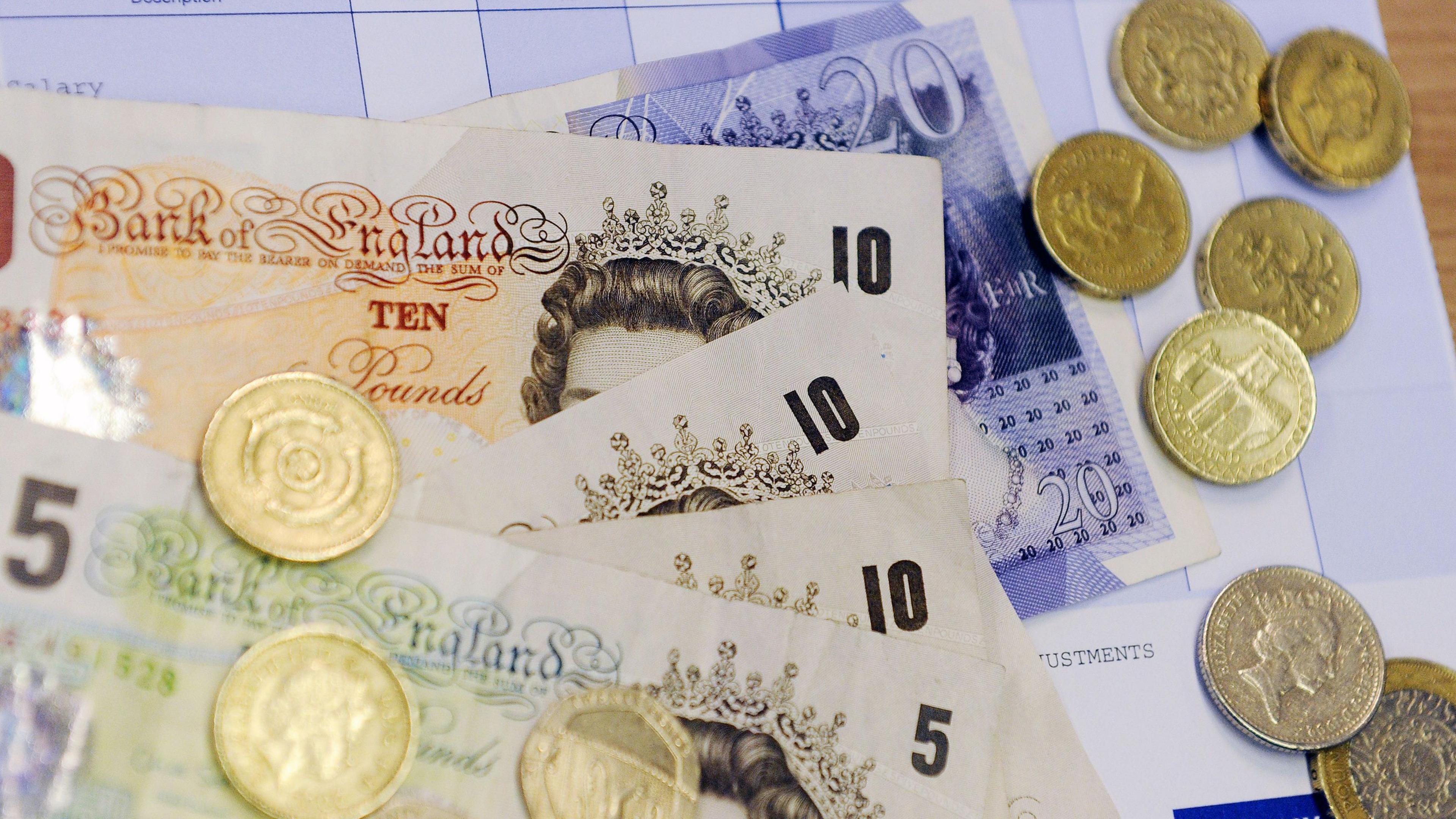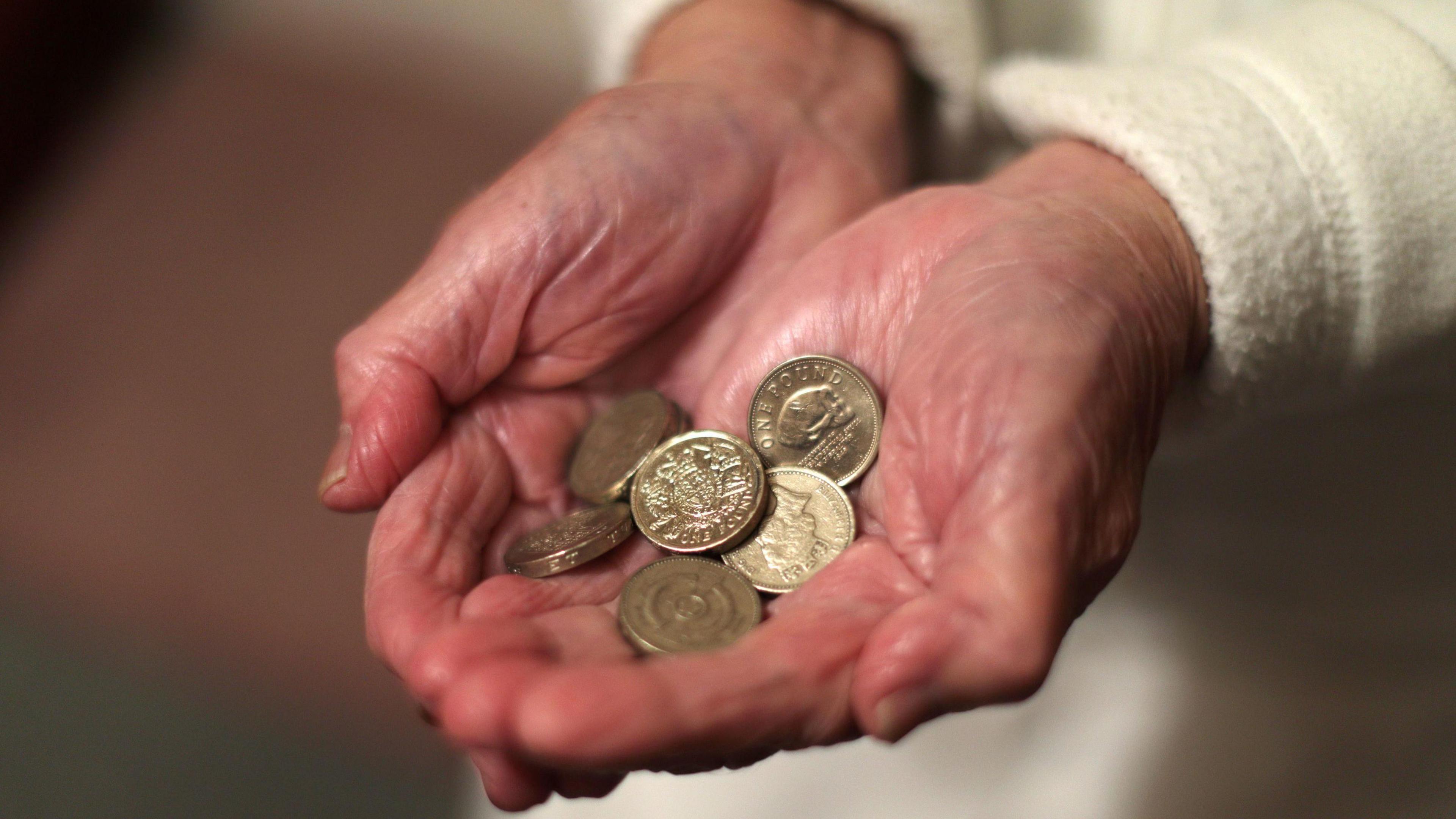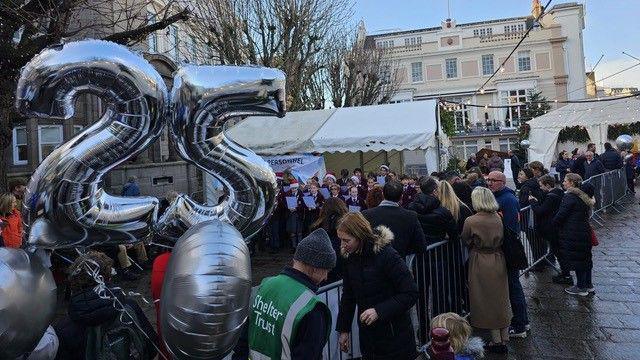Criticism as minimum wage will not increase in 2024

Reform Jersey said the report was "extremely disappointing"
- Published
A Jersey political party has said it would "bring forward counter proposals" after the government withdrew plans to increase the minimum wage.
Charity Caritas Jersey, licensed by the Living Wage Foundation in the UK, has raised the living wage rate from £12.19 to £13.41 for 2024. It said it hoped the government would stick to its post-election commitment, which was to raise the minimum wage alongside the living wage.
But in its report, external, the government said it would not be raising the minimum wage for 2024 as it was not "feasible or desirable".
Reform Jersey leader Deputy Sam Mezec said the report, which took more than a year to produce, was "extremely disappointing".
He said: "Oh, what a let down it is. It basically says do nothing and you can forget about getting the minimum wage up to the target that we'd set for getting it to the end of next year, which is two-thirds of medium earnings.
"We're going to convene early in the new year and look at what propositions we need to bring to the States Assembly to get this firmly back on the table."
Mr Mezec said it would be unfair to put undue pressure on businesses now.
He said: "Really employers should regard it as just one the basic costs of doing business, that everybody who works for them needs to be paid enough to actually live on.
"That is surely a basic principle that employers should understand."
Issues 'not addressed'
Dominic Jones, CEO of JP Restaurants, is a living wage employer.
He said the government report was "very disappointing" and "didn't really address any of the issues".
He said: "In a wealthy island such as ours, I think it's really disappointing that we have over 20% of our population living in what we would call a relative low income and, indeed, 40% of hospitality workers do not earn the living wage.
"I know there are tips on top, but just think about it: a living wage last year was £10.50; that's £420 a week working a 40-hour week.
"Many of us were really looking forward to this report to finally addressing the issues - we've had the can kicked down for many many years and the report was really very disappointing."
Mr Jones said that being a living wage employer had "absolutely reduced the profit" of his business, but "I feel a lot more comfortable going to sleep at night".
The minimum wage is £11.64 in Jersey - two thirds of the current median wage is £13.33.
Deputy Malcolm Ferey, Assistant Minister for Social Security, said the government was "committed to moving towards two-thirds of Jersey’s median wage for islanders", but it "must be done when the economic conditions are right".
He said: "Employers are facing increasing financial pressures at the moment so we must think carefully about the processes and routes taken to achieve an increase in wages.
“The technical review, which was produced following input from the Employment Forum, suggests that reaching two-thirds of median wage by the end of 2024 is unlikely, but we must remember that we are not there yet.
"More work will be carried out in the coming months to assess what level of minimum wage is sustainable for the community as a whole."
Follow BBC Jersey on X (formerly Twitter), external and Facebook, external. Send your story ideas to channel.islands@bbc.co.uk, external.
- Published18 December 2023

- Published14 December 2023

- Published13 December 2023
